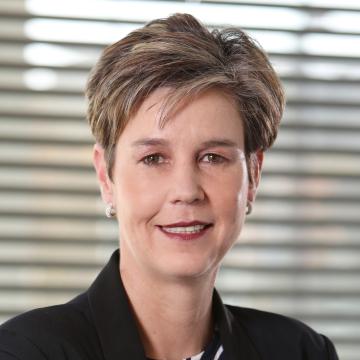Research by the Institute of Customs & Freight Forwarding (ICFF) on training and development is vital because it ensures professionals in the forwarding and customs-clearing sector remain compliant, skilled, and competitive in a rapidly changing global trade environment.
The forwarding and customs-clearing sector is the backbone of international trade, and it is therefore essential that we identify what skills and capacity building is required to enable our workforce to guide the challenges within the continuous disruptions affecting our supply chains.
It is for this reason that the ICFF’s research into training and development is so important because it directly addresses:
- Compliance with regulations: Customs laws and trade rules change frequently. Research ensures training programmes keep professionals updated, reducing costly errors and penalties.
- Professional recognition: ICFF provides designations and qualifications that elevate the status of customs and forwarding professionals, making them more credible in the industry.
- Continuous learning: Through CPD (Continuous Professional Development), ICFF research promotes lifelong learning, ensuring skills remain relevant and contemporary.
- Ethical standards: ICFF emphasises integrity and ethical conduct, which builds trust in the sector and strengthens global trade relationships.
- Career mobility: Training backed by research enhances career opportunities, allowing professionals to move across roles and regions with recognised qualifications.
- Industry professionalisation: ICFF collaborates with bodies like CILTSA to formalise logistics as a profession, ensuring the sector contributes meaningfully to economic development.
The impact of research on determining the skills and capacity required is significant as it improves various components across the supply chain:
- Efficiency gains: Skilled professionals streamline customs processes, reducing delays at borders.
- Risk management: Proper training minimises compliance risks and financial losses.
- Global competitiveness: South Africa’s logistics sector becomes more attractive to international partners when backed by professional standards.
- Social responsibility: ICFF envisages a collaborative and socially responsible industry that supports sustainable trade.
The ICFF has recently launched a research project to determine what these required skills are to ensure that our Professionally Designated Members are able to continuously develop their expertise as global trade becomes more complex.
Digital customs systems, stricter compliance, and sustainability requirements have become imperative, and the ICFF’s research ensures the workforce is not only technically competent but also adaptable to future challenges. This positions the sector as a driver of economic growth and international trust.
The continuous professional development (CPD) programmes through the ICFF as the industry professional body have a significant impact on this sector:
- Accuracy in documentation: Training ensures our professionals are correctly preparing bills of entry, air waybills, and shipping manifests, reducing costly delays.
- Regulatory compliance: Ongoing updates keep our professionals aligned with customs law changes, tariff codes, and international trade agreements.
- Technology adoption: CPD equips our professional members on how to use digital customs platforms (like Sars eFiling), improving speed and transparency.
- Risk management: Training highlights fraud prevention, valuation accuracy, and ethical practices, protecting companies from penalties.
- Customer service: Skilled professionals can advise clients on best practices, building trust and long-term relationships.
- Operational efficiency: With standardised training, processes become smoother across forwarding agents, reducing bottlenecks at ports and borders.
To effect and drive this critical change, the ICFF is collaborating with logistics bodies such as CILTSA (Chartered Institute of Logistics and Transport South Africa), Saaff (Southern African Freight Forwarders Association), and SAEPA (SA Express Parcels’ Association) to:
- Professionalise the industry: Creating recognised qualifications that elevate customs clearing into a respected career path.
- Bridge academia and practice: Aligning training with real-world industry needs, not just theory.
- Promote ethical standards: Ensuring the sector contributes responsibly to South Africa’s trade and economy.
This is important so our industry professionals can grow systematically from clerical roles to leadership positions. The sector gains and maintains global competitiveness through recognised qualifications and it supports our professionals to gain mobility across industries and borders, as ICFF credentials are recognised.







